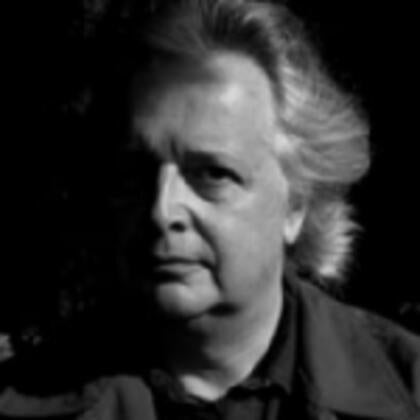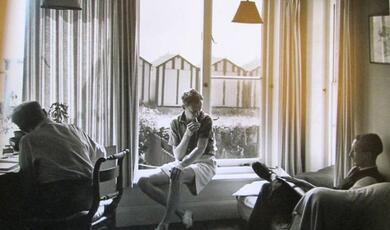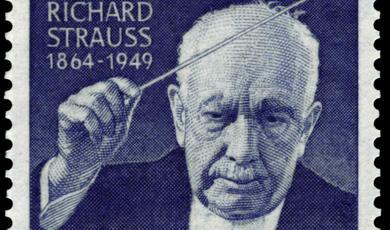What about the children?
Share
- Details
- Transcript
- Audio
- Downloads
- Extra Reading
A look at initiatives to develop the art music and performance of the next generation. A discussion on the work of the Society for the Promotion of New Music (SPNM) followed by a live performance by school groups participating in CHAMBER MUSIC 2000.
Download Transcript
What About The Children?
Professor Piers Hellawell
As I come near to the end of my survey of issues surrounding the loss of ownership of Western Music since 1900, it is only natural to look to the future. On an earlier occasion, in my session The Workshop Generation (1), I asked whether the recent trend toward concert-related music education activity is creating, as it may be hoped to create, a continuing interest among young people in live arts of a non-commercial, non-product nature.
Today we are going to continue that topic, looking at ways of introducing young musicians to demanding disciplines. Before we hear good news, I shall begin pessimistically, for there is a contradiction facing artistic trainers today: it relates to the culture of rapid acquisition, and is thus one that did not confront our predecessors. That contradiction is that the mastery of a musical instrument, or of composing new music, requires long submission to internal logics and abstract patterns – yet today’s young people live in an age of gratification, in which we are constantly offered faster ways to beg, borrow or download what catches our fancy. Messages about the pain and rewards of hard graft are all but expunged from fashionable usage.
Nonetheless, sport and science pursue, in their training, an elitism for which we have no challenge. Since it is apparent to anyone hitting a ball over a net that none of us is a Sampras, we celebrate not just the prowess but the dedication of the champion, the learning of the research scientist. These cut them off from us: we are admiring the height of the walls that keep us out.
Few other areas in British culture, meanwhile, are still guilt-free in celebrating superior achievement. Over in the Humanities, belief in rigour is crumbling, under guilt about the way specialism marks out from the rest those with special aptitude; language studies in the UK in particular seem to be in free fall (2). Last time I mentioned the scruples expressed, last week, by the very individual currently in charge of the UK education system, about the worth of intrinsic, rather than goal-orientated study, specifically of Classics. These are dark days for learning: not even the man in charge of it believes it is intrinsically worthwhile.
Basic musical grammar training, meanwhile, threatens to give way to a curriculum whose material expressly reflects what is familiar to the children, rather than what is not. The message seems to be ‘if it’s hurting, it ain’t working’. Undoubtedly the class will have more fun with, or ‘more clearly relate to’, much of this at the time, but alas! Finding out about our world - ‘education’ - is not about snuggling into what we already know, but about confronting what we do not. If we limit curriculum only to that to which we already ‘relate’ at the time, no one will learn anything. Education is, after all, also about finding out how things work – something we take for granted in the domain of the sciences.
There is, however, an argument that something for everyone is better than serious amounts for some. Certainly, the prize of increased hands-on musical involvement in peoples’ lives is so great, so enriching, that big risks may be taken, and I welcome – of course – the prospect of a broadening musical experience reaching all children. It will not be broader, though, if it merely plays them in the classroom what they hear outside it.
It comes down to whether artistic practice is held to aspire to a degree of specialism, like dentistry, or to encourage communal grazing, like food. Both would be better! Art simply cannot function without an element of specialist technique, but it has areas in which that need not be a barrier, areas that we now recognize as deeply fulfilling to ‘non-specialists’. Some societies manage a balance between these two. Yet, obeying our priorities - or someone’s - actual technique in music education has dwindled, and with it the options for children to specialize; indeed music has left the national curriculum for 14+, followed last month by languages (to be replaced by hairdressing and tourism); these are our national priorities in action (3).
In Finland, meanwhile, a network of ten specialist music schools across the country offers advanced training for those who will benefit; these students still find time for English, Swedish, French and Finnish in school too. Nor does this system remove music from other children - as part of a recent drive to raise awareness of their national instrument - the zither-like kantele - 4000 small kantele were distributed, one to every primary school in Finland. Here only computers get that kind of push. No doubt every Finnish school has those too. Yet we get the education our priorities dictate: I get the feeling that countries that are serious about education seem to pay higher taxes than we do.
It follows from the fading of technique-teaching in school arts curricula that university courses built upon these will shrink, for students will rightly shy away from courses for which they feel ill-equipped. Indeed the Minister for Higher Education has been reported as saying that courses in HE attracting unsustainable numbers may come under threat. This gives us a chilling new formula for the survival of skills: by definition, no minority training will survive, for worth will be measured purely in terms of mass-participation and its revenue. I castigated exactly this calibration in my previous talk as a means of measuring concert participation.
In my role as a university teacher I have glimpsed the grim workings of such trickle-up philistinism. Imagine we advertise two fictional courses –‘The Ideas of Schoenberg’ and ‘Jazz in the Concert Hall’. I can predict that the former may attract a quarter of the numbers enrolling for the latter; if as a result the Schoenberg course does not run, one of the most explosive periods in the history of ideas vanishes from our curriculum. In my view, the programme then offered to students is deeply flawed, for we define the priorities of an education by what we omit, just as by what we include.
In the middle of all this, the composing of music that was not there before – as opposed to emulating a known model – is a vulnerable creature, a cultural hedgehog on a busy highway. As a creation that is sublimely useless by comparison with, say, metalwork, it is particularly vulnerable to our present regime, which cannot understand intrinsic worth. ‘Ask not what we can do for the arts’, goes the thinking, ‘but what the arts can do for us’. Apparently, for example, we can help business and law make more money, according to a 2001 Green Paper, but that should not and must not be accepted as the justification for the arts.
-------------------------------------------------------------------------------------------------------
Notes
1 Hellawell, Piers The Workshop Generation, Gresham College 2001 www.gresham.ac.uk
2 Languages offer a good parallel with music: the declining belief in serious language-study over the last decade gives me nightmares. Since demand for actual language study is falling off from school-leavers, ‘cultural studies’ courses have been replacing third level language courses in a transparent response to the pressure upon universities to sustain numbers. The result is a cultural tourism that offers a meagre life raft for our European-language departments. I have seen students trying to pass Russian Studies on a night’s revision, and know from experience as a learner myself that this has nothing to do with actual Russian language study. Yet our Russian departments have been closing around the UK, and they are not alone. A report from last month’s THES reported the end of the German honours degree at Stirling University, and a threat to Slavonic studies at Glasgow University, who said, “They would have to scrutinize what courses were sustainable.”
3 As comedian Jeremy Hardy commented in ‘Jeremy Hardy Speaks To The Nation’ on BBC Radio 4 (28.1.03), ‘a Labour Government is now effectively lowering the school-leaving age to 14 because they have trouble getting a plumber!’.
This event was on Thu, 06 Feb 2003
Support Gresham
Gresham College has offered an outstanding education to the public free of charge for over 400 years. Today, Gresham plays an important role in fostering a love of learning and a greater understanding of ourselves and the world around us. Your donation will help to widen our reach and to broaden our audience, allowing more people to benefit from a high-quality education from some of the brightest minds.


 Login
Login






